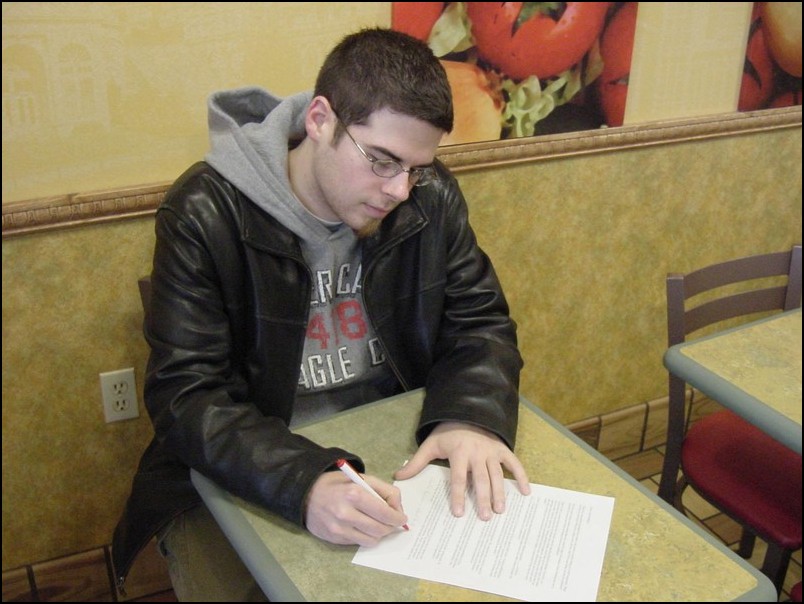There are young writers throughout the country with stories or poems sitting on a shelf somewhere. What can they do with them? What does it take to get to the next step? And how and where can they be published?
Jason Lee Jordan finds it useful to keep a writer’s journal, read a lot, and have others read and critique his material. Jordan is a regular book reviewer for the Web-based Decomposition Magazine and has also been published in The Giles Corey Press, The Edward Society, Bloviate This and other online publications. Jordan recently published the first issue of his own zine called Melancholiks. The zine features dark material in a satirical light.
Several distinguished writers suggested learning how to write in more than one style or genre. For instance, Ernest Hemingway was a journalist for several years before his famous works of fiction were published. And Daniel Castro, a young writer from New Orleans currently studying English at Indiana University, is a fiction writer but covered stories for the Indiana Daily Student.
Small steps can be made to get your name out as a writer. However, Castro said, “Getting published in magazines can often be more about who you know than what you write. It’s hard to get published for the first time. Editors have a lot to read, and if they don’t see that your work has been in anywhere else it makes it much easier to toss into the wastebasket.”
Some of Castro’s fictional short stories have been published in a New Orleans short fiction magazine. “Names mean a lot,” he said. “Either names of people you know, or names of other publications you’ve appeared in.”
Local writer Mike Smith, author of the novel “Tell Christian I’m Sorry,” agreed with Castro.
“Getting published does indeed have a great deal to do with who you know, but I don’t think it’s universal – it differs on a case by case basis,” said Smith. “For instance, I didn’t know too many people involved in publishing when ‘Tell Christian’came out in 2003, and my relationship with Wasteland Press was started by me alone.”
Smith is also the publisher and editor of the online-only Decomposition Magazine. The magazine was created in April of 2004 and has featured several poems and prose pieces as well as short stories, including Carrie Turner’s humorously disturbing “Miss Priscilla’s Dead,” which recounts the author’s experience at a backwoods Kentucky funeral. Writers from West Virginia, Colorado, Chicago and New York have been published as Decomposition continues to grow.
Drew Austin, whose work won a 2002 Quill and Scroll award and was published in Umbra and The Levee Review, offered advice on the writing itself.
“If you’re trying to get published, you should think of the audience who will read it during the writing process,” said Austin, who won the award for a story about a peer who died from huffing aerosol. “I wouldn’t try to write just to please other people, but it’s very important to question whether anyone else will actually want to read it.”
Guides such as “The Shortest Distance between You and a Published Book” by Susan Page, “The Complete Idiot’s Guide to Getting Published” by Sheree Bykofsky, and “How to Get Happily Published: A Complete and Candid Guide” by Judith Appelbaum might also prove useful. Also, a creative writing class or a writers’ workshop provides a good sounding board and support group for some writers.
Connections certainly play a part, but there are several opportunities here in Louisville to submit work. Writers can send submissions to The Giles Corey Press at [email protected] by March 4 for publication in their next magazine, due out April 12.
Decomposition Magazine at http://www.decompositionmagazine.com accepts submissions at any time, as does Simon McKim’s “Bloviate This” ([email protected]).
If you’re one of those writers with work stashed away, there are many opportunities for you in Louisville. Expose yourself and your writing. Like Robin Williams said in “Dead Poet’s Society,” “Carpe diem.”






